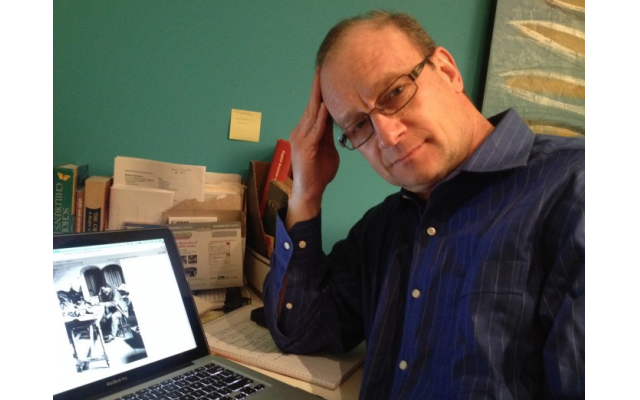Social Distancing Before It was Cool
As he exercises his introverted tendencies, Dave watches the COVID-19 data, worrying that downward trend lines may yet be reversed.
Dave Schechter is a veteran journalist whose career includes writing and producing reports from Israel and elsewhere in the Middle East.
I miss knowing that I can go out as much as actually going out.
Because I am potentially immunocompromised (and a few months away from another risk marker), the Centers for Disease Control and Prevention categorizes me as among those most vulnerable to COVID-19.
As an introvert and someone who writes from an office at home, being told to shelter in place felt like being told to keep calm and carry on.
Fellow introvert Leonard Pitts Jr. offered this observation in his Miami Herald column: “There is a spirited back and forth on social media these days between extroverts bouncing off walls and introverts discovering they had a superpower all this time and didn’t even know it. To quote one popular meme, we were social distancing before social distancing was cool.”
My days have a Groundhog Day quality: I write, do housework, tend to the crops, let the dogs in and out, let the dogs in and out, think about what to make for dinner, and check for one of those online all-star charity concerts-from-home that have been so welcome the past couple of months.
Other than driving to my doctor’s office for treatment on three successive Mondays at the end of March and beginning of April, the furthest I’ve traveled is to a park where my wife and I walked a trail for a half-hour on a Sunday morning.
I wore a mask, even though we encountered only two other people and did not stop to chat.
The friends who recently stopped by on a walk to say hello, from a safe distance, were the first people I had talked to in person other than my family and the couple with a toddler daughter next door.
By the time this column is published, at least two months will have passed since my last social outing, a regular Monday lunch with a friend at a neighborhood joint.
I miss that lunch. Our conversation begins with soccer, primarily American and British (he is an ex-pat), and moves on to politics, business, and our respective households.
I miss live soccer on television, games that count now, not replays from the past. I miss Atlanta United, having attended all but a handful of home games since the first at Bobby Dodd Stadium in March 2017. No one knows when (or if) the Major League Soccer season will resume, and as much as I enjoy the Mercedes-Benz Stadium, I will return only when convinced that doing so doesn’t endanger my health.
I miss the grocery store. Darling Daughter insisted that we try an online grocery delivery service. I’ll say this, it certainly cuts down on impulse purchases.
I miss going to the occasional concert (particularly the First Friday jazz program at First Congregational Church in downtown Atlanta), the occasional play, the occasional meal out, the occasional social gathering.
Though I may be as comfortable staying in as going out, I sometimes look forward to the latter. The headline on Pitts’ column in the Miami Herald column captured these contradictory inclinations: “Even introverts like me feel some social distancing strain.”
My first article about COVID-19 and the Atlanta Jewish Community — “Being Jewish in The Time Of Coronavirus” — appeared March 11 on the Atlanta Jewish Times website. By the time this column appears, my story count will have surpassed three dozen.
I keep watch on the COVID-19 Daily Status Report updates posted by the Georgia Department of Public Health, particularly the total number of confirmed cases in Georgia, the number of patients hospitalized, the number of deaths attributed to the virus, and the number of Georgians tested for COVID-19.
I follow those numbers and the trend line graphics to gauge the impact of the reopening of various forms of business, as authorized by the governor. You can count me among those who worry that without adequate testing (which has improved, but remains insufficient) and a diligent public — including some who seem hell-bent on flaunting guidelines to make a political point — any downward trend will be reversed.
So at least through the date this column is published, and likely for some days after that, I will exercise my introverted tendencies while hoping that in the not too distant future, I will have both the option and the desire to go out.




comments